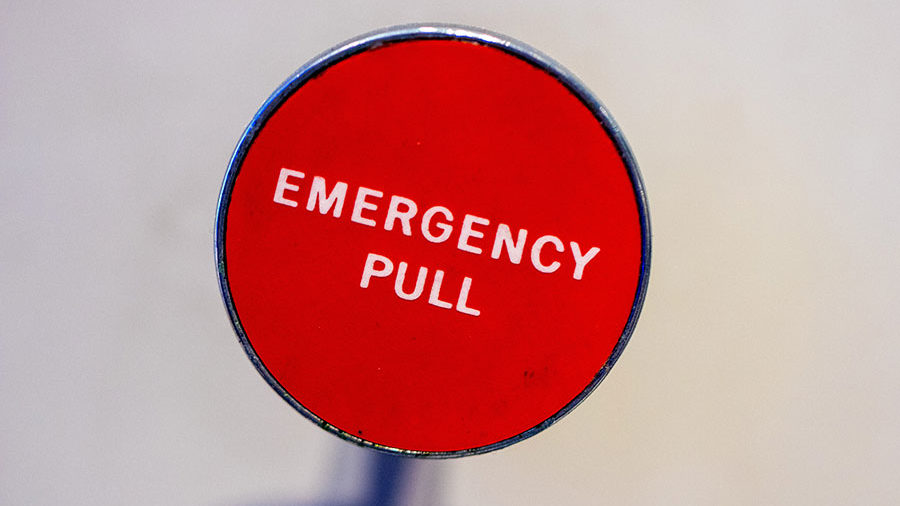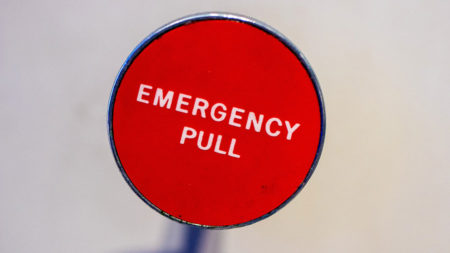Sometimes it makes sense to spend your emergency fund on a non-emergency. Below are four common scenarios that might warrant dipping into your emergency savings.
Even if you’ve saved up a solid emergency fund, it can be difficult to actually use it. People tend to second guess themselves on what a real emergency is; in fact, some might not touch their emergency fund even when the situation calls for it. That can be financially dangerous.
So let’s be clear up front:
If you need to cover medical bills, repair your damaged car, or pay the bills after you’ve been laid off (maybe because of a global pandemic), that is an emergency. And you should use your emergency fund to cover these types of expenses—they’re why your emergency fund exists.
But what about those expenses that aren’t quite so urgent? Is it ever okay to use your emergency fund for non-emergencies?
It depends. There are definite times that you should NOT use your emergency fund—but there are also scenarios when it may be worth considering. Let’s look at four common scenarios to better understand when an emergency fund should and should not be used.
Yea or Nay? When To Use Your Emergency Fund
A Vacation
Your one-year anniversary is coming up and you really want to show your significant other that you appreciate them. So you start looking at an all-inclusive package for a two-week trans-Pacific cruise. You don’t have enough money in your vacation savings, but you think you can pay it off. Should you dip into your emergency fund to cover the rest?
The answer: probably not.
The best thing to do is to wait until you have enough saved to pay for it outright or just go on a cheaper vacation. Once you dip into your emergency fund for something that has no expected return or opportunity, it’s much easier to dip into it again. With this mentality, you’ll soon have no emergency fund.
Verdict: Don’t spend your emergency fund on non-essential travel or gifts. Remember that your emergency fund is for the unexpected—set those travel plans and big gifts as financial goals instead.
Preparing for a New Job or Business
You’re getting ready to start a new job or business, and you need some equipment to get going. Let’s say you need a quality printer, a card reader, and multiple boxes of stationary to get your business up and running. You can either put it on a credit card or dip into your emergency fund. Which makes more sense?
The answer: it depends.
For those moving into a well-established new job, it’s generally fine so long as you use your new income to replace your spent funds.
But if you’re running a business as a self-employed individual, it may be a different story. Startup expenses for a new business can be costly, and for sole proprietors, your business income is reported directly on your individual taxes. Using your emergency fund can prevent incurring new debt from startup costs.
In short, this strategy is generally okay so long as you use your new income to immediately replace your emergency fund. However, you’ll want to be extra careful and deliberate. If your new business opportunity isn’t lucrative, you’ll risk financial vulnerability.
Verdict: This is a gray area that depends largely on the expected returns of your new job or business. If starting a new job or business has guaranteed returns—enough to replace your emergency fund in the near future—it’s okay to use your emergency savings for these startup costs.
Moving
You’ve decided that there are better job opportunities outside of your current location, so you want to move. Of course, moving is expensive. Renting a truck, fixing up your home, and getting settled in a new place—it’s a lot to process.
Should you dip into your emergency fund to cover these expenses?
The answer: probably yes.
Technically, deciding that you want to move isn’t an emergency, but it can be quite sudden. What’s more, an opportunity can come and go very quickly, making the situation urgent—though not technically an emergency.
Given the potential implications of moving (both professionally and personally), this could be a good time to dip into your emergency fund. Especially if you’re going to make more money and/or have lower expenses because of the move. Then you can easily refill your emergency fund once you’re settled in.
Verdict: It makes sense to use your emergency fund for moving expenses if your move is directly tied to earning more income (as in moving for a new job), or will result in lower living expenses (as in moving somewhere with more affordable rent).
Going to School
You know that you can get a better job if you go back to school, but, needless to say, school is expensive. Tuition alone can be thousands—or tens of thousands—a year!
Should you use your emergency fund to pay for it?
The answer: probably yes.
In general, it’s best practice to avoid falling into debt—and your emergency fund can potentially do this for you. Of course, the ability to pay for college outright is a major financial advantage that isn’t available to all. Besides using your emergency savings to fund your studies, you can also take measures to lower student debt by working part-time and paying for tuition.
But what if the worst happens and you end up needing your emergency fund?
Fortunately, financing is very easy to come by for students. You can apply for student loans to cover your expenses at a very low interest rate.
Verdict: If the best scenario happens, using your emergency fund can get you out of college debt-free. If the worst happens, you’ll get out of college with a little or some debt.
4 Principles to Keep in Mind
While the situations presented above are not comprehensive, they provide a snapshot of appropriate times to use your emergency fund even when it’s not a true emergency. However, it’s important to remember that everyone has unique financial circumstances—there is no one-size-fits-all answer across all hypothetical scenarios.
When deciding whether or not to use your emergency fund, it’s best to keep these four principles in mind.
- Avoid spending your emergency fund on non-emergencies without a long-term benefit. Remember the vacation example. No matter how valuable the memories are, you’ll spend all of your money for a week of joy, but have nothing to show for it later on. Then you’ll be stuck when a true emergency arises.
- Avoid getting high-interest debt. Remember the new business example. A lucrative new business may pay back your initial startup costs eventually, but it’s also hard to predict how long that’ll take. Having high-interest debt makes it take longer to break even.
- You can spend your emergency fund if you know you’ll soon have a cash windfall on hand to replenish it. Remember the moving example. If you expect the move to decrease your expenses and/or increase your income, then you’ll soon have more money on hand up front. This will help you make it through any temporary setbacks until you’ve rebuilt your emergency fund.
- You can spend your emergency fund if you have another “safety net” for the interim. Remember the college example. Even though you’re going out on a limb, it’s possible to get a low-interest loan if something urgent comes up. Once again, this is a last resort—and high-interest debt is not a safety net. Understand the difference.
Conclusion
There are many tempting occasions for dipping into your emergency fund—a spontaneous getaway, for instance, or a last-minute birthday gift. However, determining when is appropriate to use your emergency savings requires extra thought and deliberation.
To be clear, there are certainly non-emergencies for which you should dip into your emergency fund. Just remember to consider both the short- and long-term financial consequences of doing so, as well as how these affect your larger money goals.
About the Author
Shaun Morgan is a personal finance blogger at Simply Know Money, a site dedicated to helping low-income earners use their money wisely to obtain financial security and freedom. He is also a middle school teacher who loves to focus on economics and teach his students sound financial principles.






Great post. I have actually thought about this a few times.
I only use my emergency fund for unexpected stuff and not luxuries.
I could bet my life that my six month emergency fund will be sat untouched for six months and then the second I buy some impulse purchase I will lose my job and need it.
I have my account set up so it takes roughly three days for me to access the money, therefore it gives a cool off period to stop me from impulse spending.
Best wishes!
Josh
I think that is an awesome point. Having the three day cool off period really helps decide if it is actually worth it. Great idea!
I’m usually on the ultra conservative side on money issues but I think you have shown a lot of wisdom in this advice. What’s the point of an emergency fund if it is untouchable except for life and death situations that rarely, if ever, happen?
Absolutely. As long as you have conservative uses of your money then why not use it?
I liked this article, many articles focus on saving those 3-6 months monthly expenses (even 1 year in this pandemic) but not many cover when you should actually dip. I have dipped into it when moving abroad but I had the job lined up and used the revenues of the new job to replenish it over a few months.